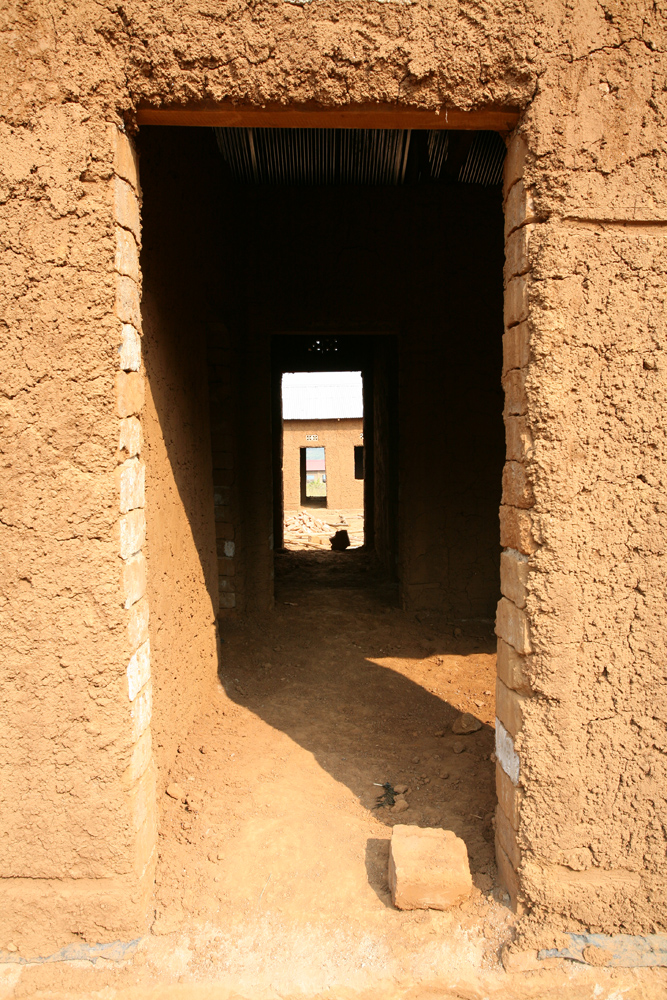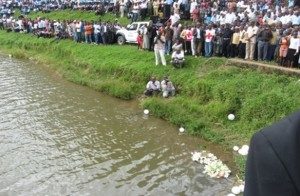
“Failure to provide reparation to survivors of genocide is denying their status of being victims”
The BBC’s very popular hour-long, and often controversial, radio programme, Imvo n’imvano, aired this Saturday with a debate on the right to reparation for the survivors of the genocide against Tutsi in Rwanda.
While Imvo n’imvano has been criticized previously for giving more airtime to genocide deniers, and rarely providing the same opportunity to victims of the Tutsi genocide. On Saturday, the programme shed light on one of the most sensitive issues still to be addressed by decision makers in post-genocide Rwanda – reparation.
Four guests were interviewed on the programme, representing civil society, academia, and the Government of Rwanda.
Dr. Jean Pierre Dusingizemungu, and Mr. Raphael Ngarambe spoke on behalf of IBUKA, the national umbrella organization of survivor’s associations. Also participating in the debate were Mr. Evode Uwizeyimana, a university lecturer in law from Canada, and Mrs. Odette Yankurije, Assistant Attorney General, representing the government of Rwanda (GoR).
At the outset, Dr. Dusingizemungu of IBUKA, stated that adequate reparation must be provided to survivors in spite of the assistance the GoR already makes available through the Government –backed fund for needy survivors, commonly known as FARG. According to IBUKA, the establishment of a potential “Joint Task Force” including government ministries, civil society and possibly UN agencies is required to the initiate the national process of exploring adequate mechanisms to realise the right to reparation for survivors.
Mr. Uwizeyimana stressed that survivors of genocide have an absolute right to effective remedy, including reparation for material and moral damages inflicted by illegal acts to which they have been subject. He warned that the failure to providing reparations to survivors is denying their status of victimhood.
In response, Mrs. Yankurije stated that the government had many more pressing priorities in the aftermath of genocide than reparation. She refuted the theory that the government is trying to deny the status of victimhood to survivors. Instead Mrs. Yankurije emphasised that the GoR had to rebuild the justice infrastructure, hold perpetrators to account and support the most vulnerable survivors.
However, in a landmark pronouncement, for the first time, the Government of Rwanda agreed that the 6% of the annual state budget allocated to FARG is not considered as reparation. “The issue of reparation of reparation has not been disregarded ‘’said Mrs. Yankurije.
With regards to the Task Force, Mr. Yankurije emphasised that Rwanda has been able to resolve a number of issues without necessarily reverting to the need for a Task Force:
“The fact that reparations have not been delivered to date is not because a Task Force has not been set up. It is instead because the circumstances have not, and may still not, allow the Government to do so. Although the Government agrees that the current assistance to survivors should not be referred to as reparation, I think we should all agree that a lot has been delivered, given where we were in 1994, and there should be hope that what remains to be undertaken will be addressed. The priority was given to the most urgent issues. The Task Force is not the exclusive solution. The government does not decline that survivors have the right to reparation and the political will is there. What is not clear yet is how this will be done, and where funding will come from. Everything cannot be done at one go. I think it’s not too late. ”
Mr. Uwizeyimana commenting on the form that reparation may take, between collective measures and individual measures, proposed that due to the huge number of victims collective reparation may be more appropriate. He commented:
“In the process to materialise the issue of reparation, the Government of Rwanda should consider the political measures and negotiations between the Governments of Israel and Germany in the aftermath of the Holocaust. Out of these measures, Germany has paid billions of marks in reparation to survivors of the Holocaust to Israel. In the case of Rwanda, the political measures would aim at mobilizing reparation funds from the UN and some western countries that implicitly or explicitly recognise their criminal or political liability in the 1994 genocide, such as France.”
The official recognition of the survivors’ right to reparation by the Government of Rwanda through the Ministry of Justice follows the speech of the Honorable Vice President of the Senate of Rwanda , Jeanne d’Arc Gakuba, who at the occasion of the closure of the 100 days of genocide commemoration on 15th July 2012, made clear that the issue of reparation is not forgotten.

